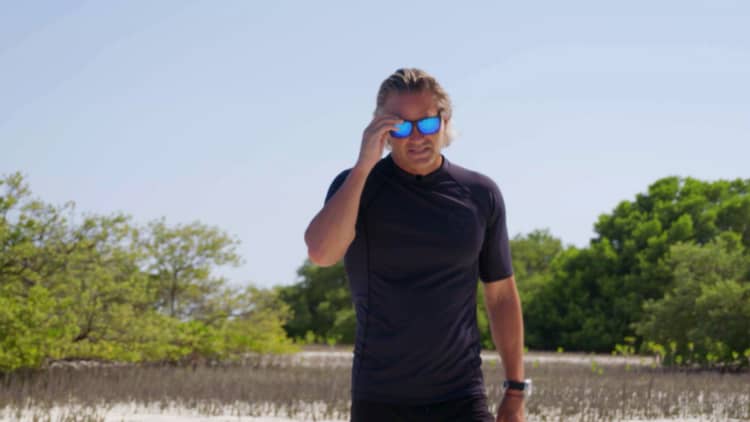At just 31, Kyle Maynard has already accomplished way more than most people ever will. Even Oprah Winfrey has praised Maynard, calling him "one of the most inspiring young men you will ever hear about."
Born with a condition called congenital amputation, Maynard is an ESPY-award winning mixed martial arts athlete in jiu-jitsu, the first amputee to climb Mount Kilimanjaro without the help of a prosthesis, a wrestling champion and the author of a New York Times-bestselling book called "No Excuses: The True Story of a Congenital Amputee Who Became a Champion in Wrestling and in Life."
He has appeared in a groundbreaking Nike commercial and has been the subject of a documentary. Plus, he travels the country helping Fortune 500 executives and serving as a motivational speaker for soldiers and at college campuses.
CNBC spoke with Maynard via phone from the Hightower Apex Conference in San Francisco, California. Here's his best advice about personal achievement, work-life balance and setting goals.
"Work smarter and harder"
Maynard, who considered his father a source of inspiration growing up, says that he knew from a young age that his disability would lead to "disadvantages." But that didn't stop him. "I'd just work that much harder," he says. "I'd stay after wrestling practice or weight lifting and do that extra work and just put in that extra time."
Maynard even has a mantra he tries to follow. "I'm a big fan of 'work smarter, not harder,' but I think it's like, 'work smarter and harder,' sometimes," he says. "I just notice that people do those extra things for a multitude of reasons due to their level of commitment and commitment shows in their results."
Blend work and play
Maynard says he's a fan of work-life balance but doesn't think there necessarily needs to be a separation. It's "an awesome thing," he says, but "I want to aspire to blur the lines between work and play much more."
He adds, "The less we can differentiate between work and play, it actually leads to a life well-lived."
Failure teaches more than success
"I believe there's a lot more to be learned from failures than when everything goes right," says Maynard.
He considers failure to be a spectrum. "You have the little failures and the bigger screw-ups," he says, but there are also things you "need to stop doing right away."
In those instances, he says, it can be difficult to quit, although you may be better off in the long run if you do.
Surround yourself with those who add value
This suggestion comes from Maynard's experience working with Fortune 500 executives and entrepreneurs as a motivational speaker. "There's not one personality that dominates the group," he says. "It's really a mix of introverts and extroverts. It's all types of different mindsets."
But all the business leaders he speaks with have one thing in common: A "fervent desire to solve problems."
"I think the people I want to associate most are more concerned with providing value to people than just to shareholders or their bottom line," Maynard says. "It's such an eclectic mix of people."
See also: 3 tricks to boost your mental toughness, from an ultra-marathoner and his dog
This interview has been edited for grammar and clarity.




